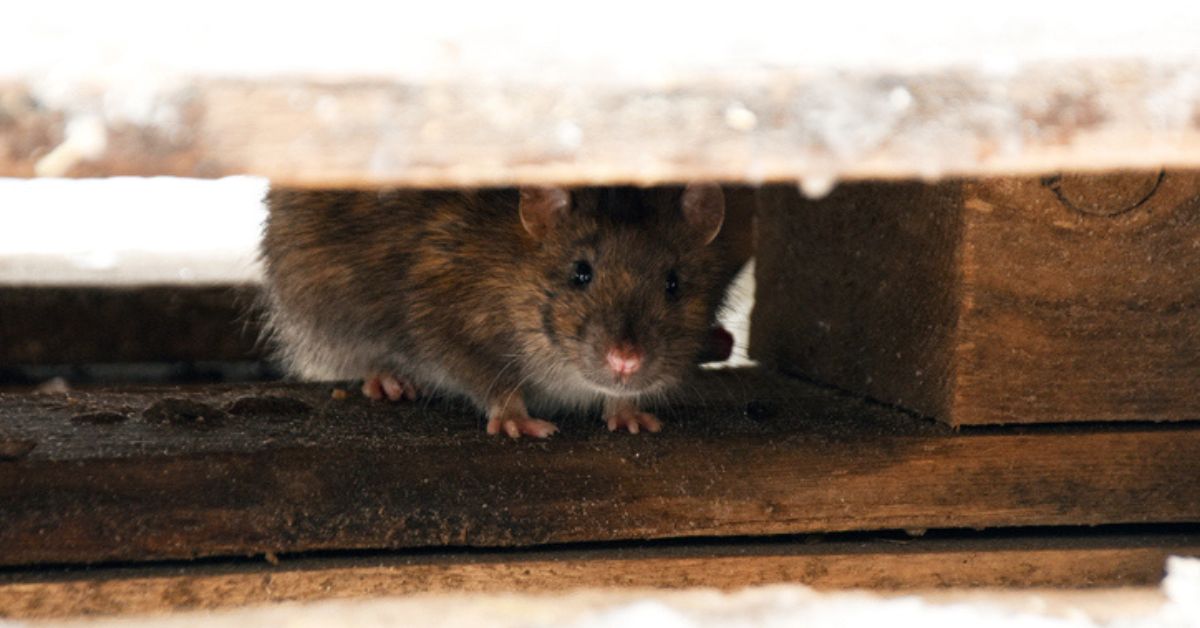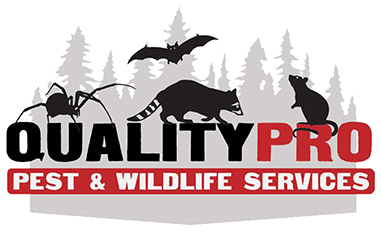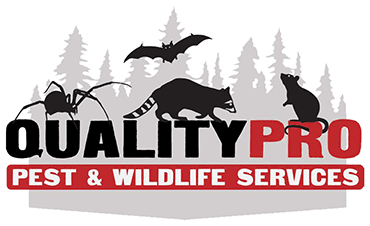
Seasonal Changes in Rodent Activity
As the temperatures drop, rodent behavior undergoes significant changes. Colder weather drives these small mammals to seek warmth and shelter, often leading them to infiltrate homes and buildings. The biological need to survive harsh conditions triggers an increase in rodent activity. Rodents, such as mice and rats, are warm-blooded creatures that cannot withstand prolonged exposure to cold. Consequently, they become more active in their search for food and shelter, making them more visible to homeowners during the winter months.
Environmental triggers also play a crucial role in this seasonal shift. As natural food sources become scarce, rodents are forced to venture closer to human habitats in search of sustenance. This increased proximity to human dwellings heightens the chances of sightings and infestations. Understanding these behavioral patterns can help homeowners anticipate and mitigate the risks associated with winter rodent activity.
Rodent Survival Instincts
Rodents have evolved remarkable survival instincts that kick into high gear during winter. One of the primary instincts is to find a warm place to nest. Homes, with their consistent heat sources, become prime targets. Rodents are adept at squeezing through tiny openings, making it easy for them to enter homes through cracks, vents, and other small entry points. Once inside, they seek out hidden, warm areas to build nests and breed, further increasing their population.
Food scarcity in the wild also drives rodents indoors. They are opportunistic feeders and will consume almost anything, from pantry staples to pet food. This relentless search for food and shelter is a survival mechanism that ensures their species' continuity during the harsh winter months. Homeowners need to be aware of these instincts to effectively prevent and control rodent infestations.
House Mice
House mice are one of the most common rodents found indoors during winter. These small, agile creatures are known for their ability to squeeze through openings as small as a dime. In winter, house mice seek out warm, secluded areas within homes to nest and breed. They are nocturnal and tend to stay hidden during the day, making it challenging to detect an infestation until it becomes severe. Common signs of house mice include droppings, gnawed food packaging, and scratching noises within walls.
Entry points for house mice are typically found around foundations, windows, and doors. They can also enter through gaps around utility lines and pipes. Once inside, they reproduce rapidly, leading to a significant infestation if not promptly addressed. Homeowners should be vigilant in identifying and sealing potential entry points to prevent house mice from taking up residence.
Norway Rats
Norway rats, also known as brown rats, are larger and more robust than house mice. These rodents are highly adaptable and can survive in various environments, including urban areas. During winter, Norway rats seek out warm, sheltered areas to nest, such as basements, crawl spaces, and attics. They are excellent burrowers and often create extensive tunnel systems to access food and nesting sites.
Norway rats are known for their destructive behavior, gnawing on wood, electrical wiring, and insulation. This can lead to significant structural damage and increase the risk of fire hazards. Homeowners should be aware of typical hiding spots and nesting habits to effectively address and prevent infestations. Regular inspections and prompt repairs of any structural vulnerabilities can help keep Norway rats at bay.
Roof Rats
Roof rats, or black rats, differ from their Norway rat counterparts in several ways. They are more agile and prefer elevated areas, such as attics, roofs, and upper levels of buildings. Roof rats are excellent climbers and can access homes through overhanging tree branches, utility lines, and roof vents. Their presence is often indicated by gnaw marks, droppings, and the sound of scurrying in the upper parts of the home.
Roof rats prefer to nest in warm, dry areas and are particularly attracted to stored food and cluttered spaces. Homeowners should regularly inspect and trim tree branches near their homes to prevent roof rats from gaining access. Keeping attics and upper levels clean and clutter-free can also deter these rodents from nesting.
Environmental Factors
Urbanization and habitat disruption significantly impact rodent populations, leading to increased sightings during winter. As natural habitats are destroyed or altered, rodents are forced to adapt to urban environments. This often means seeking shelter and food in human dwellings. Additionally, weather patterns, such as heavy snowfall or prolonged cold spells, can drive rodents indoors in search of warmth and sustenance.
The construction of new buildings and infrastructure can also displace rodent populations, causing them to seek new habitats. Homeowners in urban areas should be particularly vigilant during winter, as these environmental factors can lead to a surge in rodent activity. Understanding the impact of urbanization and weather patterns on rodent behavior can help in developing effective prevention strategies.
Human Behavior
Human behavior during the holiday season can inadvertently attract rodents. Increased food waste, holiday decorations, and the storage of seasonal items create ideal conditions for rodents to thrive. Improper disposal of food waste and the accumulation of clutter provide ample food sources and hiding spots for rodents. Additionally, the use of home heating and insulation practices can create warm, inviting environments for rodents seeking refuge from the cold.
Homeowners should be mindful of their habits during winter, ensuring that food waste is properly disposed of and that homes are kept clean and clutter-free. Regularly inspecting and maintaining heating systems and insulation can also help prevent rodents from finding entry points and nesting sites. By being proactive, homeowners can reduce the risk of rodent infestations during the winter months.
Structural Vulnerabilities
Structural vulnerabilities in homes are a significant factor contributing to rodent infestations. Common weaknesses, such as cracks in foundations, gaps around windows and doors, and unsealed utility lines, provide easy entry points for rodents. Once inside, rodents can cause extensive damage to insulation, wiring, and other structural components, leading to costly repairs and increased health risks.
Regular home maintenance and repair are crucial in preventing rodent infestations. Homeowners should conduct thorough inspections to identify and seal potential entry points. Using materials such as steel wool, caulk, and weather stripping can effectively block access and deter rodents from entering the home. By addressing structural vulnerabilities, homeowners can create a more rodent-proof environment.
Home Inspection and Maintenance
Regular home inspections are essential in identifying and addressing potential entry points for rodents. Homeowners should inspect the exterior of their homes for cracks, gaps, and holes, paying particular attention to areas around foundations, windows, doors, and utility lines. Sealing these entry points with appropriate materials, such as caulk and steel wool, can effectively prevent rodents from gaining access.
In addition to sealing entry points, homeowners should also focus on maintaining their homes' overall condition. This includes repairing damaged siding, roofing, and insulation, as well as ensuring that vents and chimneys are properly screened. Regular maintenance not only helps prevent rodent infestations but also contributes to the overall safety and efficiency of the home.
Sanitation and Food Storage
Maintaining a clean living environment is crucial in deterring rodents. Proper food storage practices, such as using airtight containers and promptly cleaning up spills and crumbs, can significantly reduce the likelihood of attracting rodents. Homeowners should also ensure that pet food is stored securely and that feeding areas are kept clean.
Garbage disposal is another critical aspect of sanitation. Using tightly sealed trash bins and regularly disposing of waste can help prevent rodents from accessing food sources. Additionally, homeowners should keep outdoor areas clean and free of debris, as clutter can provide hiding spots and nesting materials for rodents. By prioritizing sanitation and proper food storage, homeowners can create an inhospitable environment for rodents.
Professional Pest Control
While preventative measures can significantly reduce the risk of rodent infestations, there are times when professional pest control services are necessary. If an infestation is suspected or confirmed, hiring a professional can ensure that the problem is effectively addressed. Pest control experts have the knowledge, experience, and tools to identify the extent of the infestation and implement appropriate treatment methods.
Professional pest control services, such as those offered by Quality Pro Pest & Wildlife Services, provide comprehensive solutions tailored to the specific needs of each home. These services may include trapping, baiting, exclusion techniques, and ongoing monitoring to prevent future infestations. Homeowners should consider seeking professional help when dealing with severe or persistent rodent problems.
Diseases Transmitted by Rodents
Rodents are known carriers of various diseases that can pose significant health risks to humans. Common diseases transmitted by rodents include hantavirus, leptospirosis, and salmonellosis. These diseases can be spread through direct contact with rodent droppings, urine, or saliva, as well as through contaminated food and water. Symptoms of these diseases can range from mild to severe and may include fever, muscle aches, and respiratory issues.
To reduce the risk of disease transmission, homeowners should take precautions when dealing with rodent infestations. This includes wearing protective gear, such as gloves and masks, when cleaning up droppings or nests and ensuring that food and water sources are kept clean and secure. By being aware of the health risks associated with rodents, homeowners can take proactive steps to protect themselves and their families.
Allergies and Asthma
Rodent allergens can have a significant impact on indoor air quality, particularly for individuals with allergies or asthma. Rodent droppings, urine, and dander can trigger allergic reactions and exacerbate respiratory conditions. Symptoms may include sneezing, coughing, wheezing, and shortness of breath. In severe cases, exposure to rodent allergens can lead to asthma attacks and other serious health issues.
To protect sensitive individuals, homeowners should prioritize cleanliness and take steps to eliminate rodent allergens from their homes. This includes regular cleaning and vacuuming, using air purifiers, and sealing entry points to prevent rodents from entering the home. By maintaining a clean and allergen-free environment, homeowners can improve indoor air quality and reduce the risk of health complications.
Safety Precautions
Handling and disposing of rodent droppings and nests require specific safety precautions to minimize health risks. Homeowners should wear protective gear, such as gloves, masks, and goggles, when cleaning up rodent-infested areas. Droppings and nests should be carefully removed and disposed of in sealed plastic bags to prevent the spread of contaminants.
Personal hygiene practices are also essential in reducing the risk of disease transmission. Homeowners should wash their hands thoroughly with soap and water after handling rodent droppings or cleaning infested areas. By following these safety precautions, homeowners can protect themselves and their families from potential health hazards associated with rodent infestations.
Watch Out for Rodents with the Help of QualityPro Pest & Wildlife Services
As winter approaches, it's essential to take proactive steps to protect your home from rodent infestations. Quality Pro Pest & Wildlife Services offers comprehensive rodent control solutions tailored to your specific needs. Our experienced team can help identify potential entry points, implement effective prevention strategies, and address any existing infestations. Don't wait until it's too late—contact Quality Pro Pest & Wildlife Services today to ensure a rodent-free home this winter.
By understanding rodent behavior, taking preventative measures, and seeking professional help when needed, you can safeguard your home and family from the risks associated with rodent infestations. Reach out to us for expert advice and reliable pest control services. Your peace of mind is our top priority.
Call QualityPro Pest & Wildlife Services now at (914) 877-3006 or contact us online.

